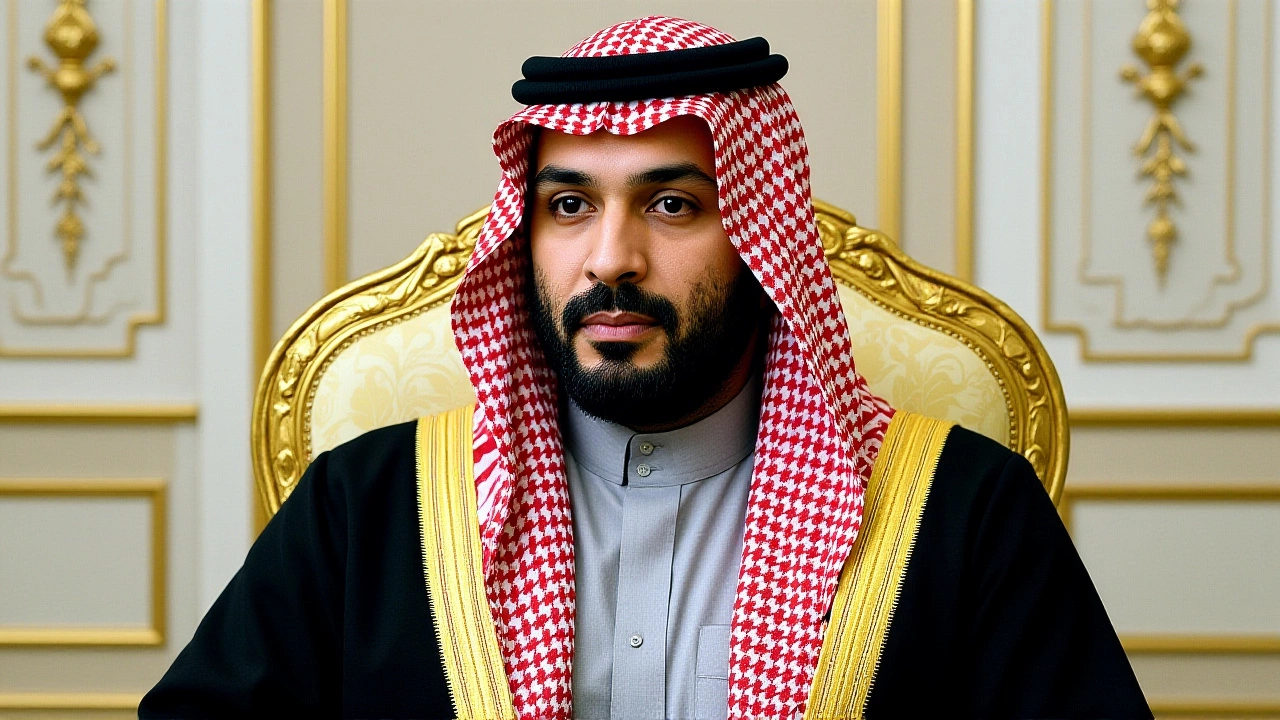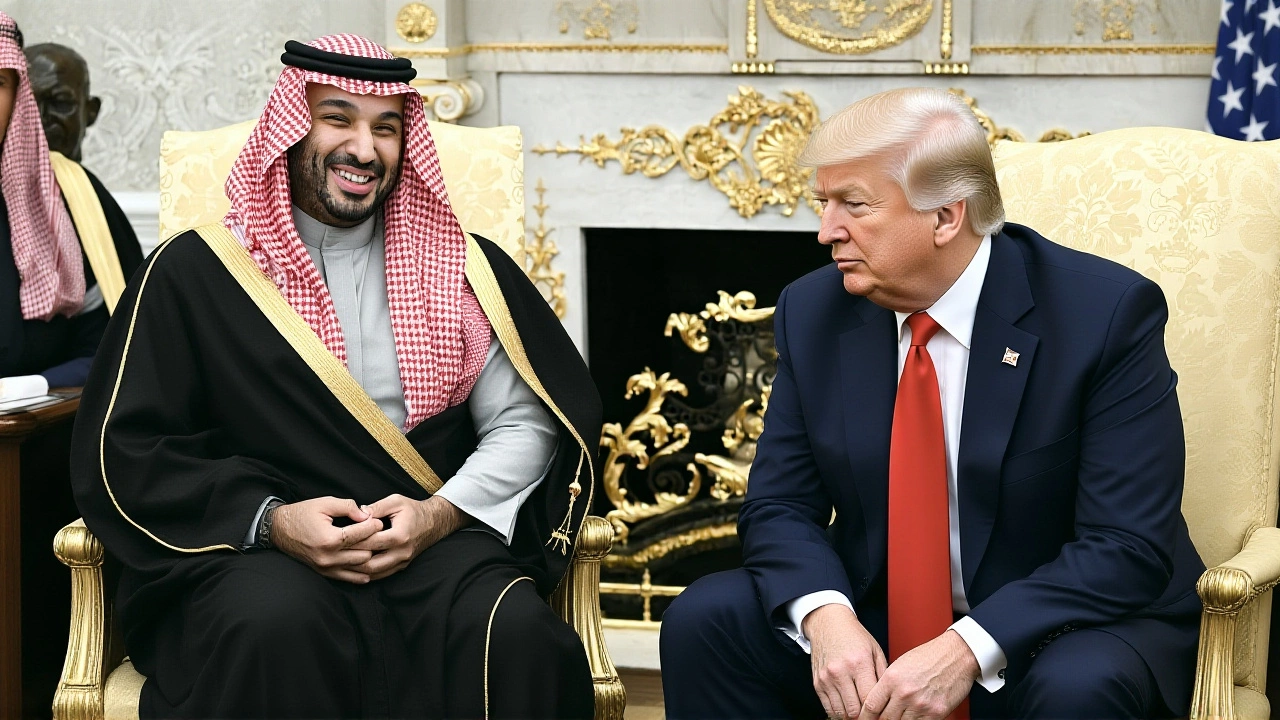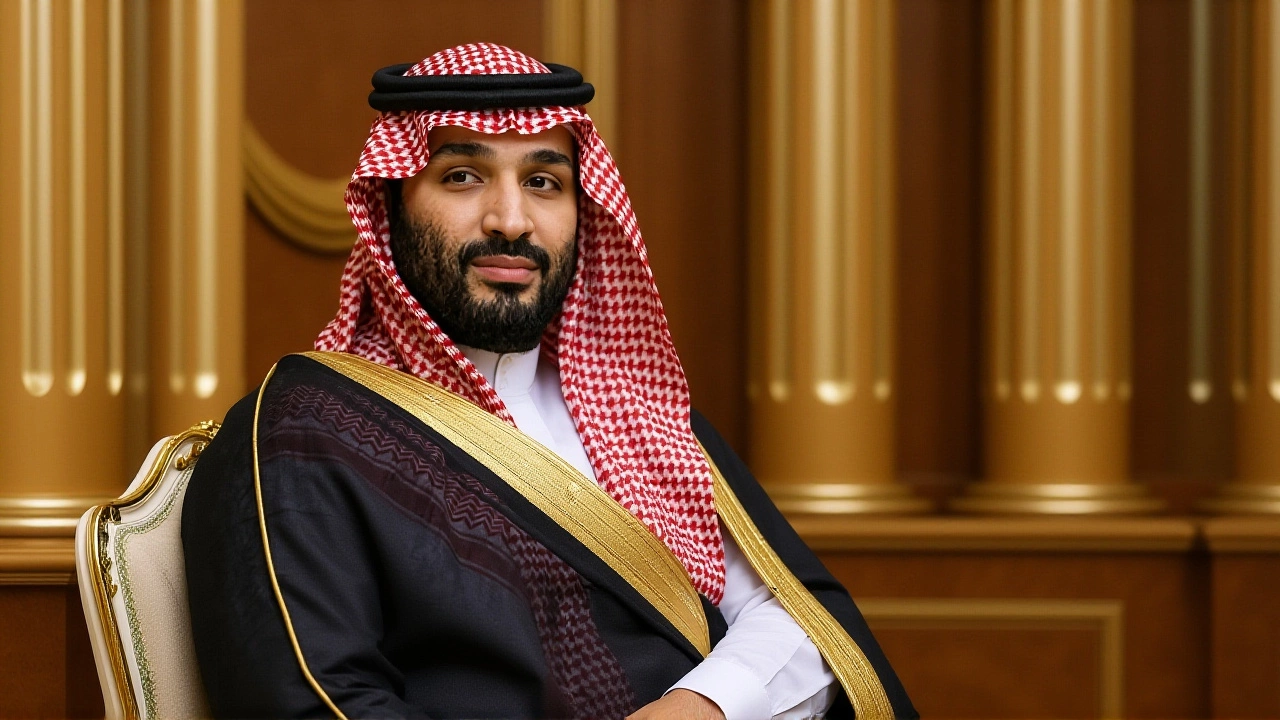Crown Prince Mohammed bin Salman Claims 9/11 Was Designed to Destroy U.S.-Saudi Ties

During a tense White House press briefing on November 19, 2025, Mohammed bin Salman, the de facto ruler of the Kingdom of Saudi Arabia, made a startling assertion: Osama bin Laden didn’t just attack America on September 11, 2001 — he attacked the very alliance between Washington and Riyadh. "The purpose of 9-11," he said, "was to destroy this relation." His words, delivered in front of President Donald J. Trump and a room full of stunned journalists, weren’t just a defense — they were a reinterpretation of history, one that flips the script on how the world has understood the deadliest terrorist attack on American soil.
"He Knew Strong Ties Were Bad for Extremism"
Crown Prince Mohammed bin Salman didn’t mince words. Citing what he called "CIA documents," he claimed bin Laden deliberately selected 15 Saudi nationals as hijackers — not because they were the most capable, but because their nationality would trigger a backlash against the Kingdom. "Whoever buys that [other theories]," he said, "they are helping Osama bin Laden’s purpose." His logic was chillingly simple: a united U.S.-Saudi front undermines extremism. Bin Laden, he argued, understood that better than anyone.It’s a narrative Saudi officials have quietly promoted for years, but never so publicly — and never with the weight of a White House podium behind it. The 9/11 Commission Report, released in 2004, found no evidence the Saudi government funded al-Qaeda. But the fact that 15 of the 19 hijackers were Saudi citizens has haunted bilateral relations ever since. Now, the Crown Prince is turning that liability into a strategic talking point: the attacks weren’t about hatred of America — they were about hatred of its partnership with Saudi Arabia.
The Nuclear Deal and the F-35s
The press briefing came after an Oval Office meeting where President Trump announced a landmark civilian nuclear cooperation pact and approved the sale of F-35 fighter jets to Saudi Arabia — a move long blocked by Congress over human rights concerns. "I want to thank you because you've agreed to invest $600 billion," Trump said, pausing with a grin. "And because he's my friend, he might make it $1 trillion."The dollar figures were staggering — and telling. The U.S. is betting billions on Saudi stability, even as families of 9/11 victims watched from the sidelines, their outrage barely concealed. One woman, holding a photo of her brother who died at the Pentagon, whispered to a reporter: "They’re selling weapons to the man who’s rewriting history while we’re still burying our dead."
Trump, for his part, dismissed questions about the 2018 murder of journalist Jamal Khashoggi — killed inside the Saudi consulate in Istanbul — by declaring, "He knew nothing about it." That contradicted a declassified 2021 U.S. intelligence assessment that concluded the Crown Prince approved the operation. The White House’s refusal to acknowledge the finding felt less like ignorance and more like political calculus: Saudi money, Saudi oil, Saudi leverage — all too valuable to risk.

"A Huge Mistake" — And Then Silence
Mohammed bin Salman called the 9/11 attacks a "huge mistake." But his tone shifted when asked about Khashoggi. "It was painful," he said, eyes down. He offered no apology, no admission of responsibility. Just the same rehearsed line: "We have reformed. We have changed."But reforms don’t erase trauma. The families of 9/11 victims have spent two decades chasing accountability. In 2021, a federal judge allowed a lawsuit against Saudi officials to proceed, citing evidence of possible state involvement. Now, with the Crown Prince sitting in the White House, those families feel erased. "He’s not here to answer for the dead," said Mary Fitzgerald, whose husband died in the World Trade Center. "He’s here to sell a narrative — and a fighter jet."
Why This Matters Beyond the Headlines
This isn’t just about memory. It’s about power. By framing 9/11 as an attack on the U.S.-Saudi alliance — not on American values — Mohammed bin Salman is trying to reposition his country as a victim of terrorism’s strategy, not its enabler. He’s saying: "We’re not the problem. We’re the solution."And for now, Washington is listening. The F-35 deal, the nuclear pact, the trillion-dollar investment promise — they’re all signs the U.S. is choosing realpolitik over reckoning. But history doesn’t vanish because someone says it differently. The 9/11 families aren’t going away. Congress isn’t blind. And the world remembers what happened on September 11, 2001 — not as a geopolitical ploy, but as a human catastrophe.

What Comes Next?
Mohammed bin Salman is scheduled to meet with Senate leaders and attend a dinner at the U.S. Chamber of Commerce. But behind closed doors, diplomats are bracing for fallout. Lawmakers from both parties are already drafting legislation to block the F-35 sale unless Saudi Arabia agrees to an independent review of its role in 9/11. Meanwhile, Saudi state media is broadcasting the Crown Prince’s remarks as a "historic clarification." In Riyadh, school textbooks may soon be rewritten.One thing is certain: the narrative battle over 9/11 has moved from the archives to the Oval Office. And for the first time, the man once accused of enabling terrorism is now claiming to be its most effective opponent.
Frequently Asked Questions
What evidence does Mohammed bin Salman provide for his claim that bin Laden wanted to destroy U.S.-Saudi relations?
The Crown Prince cited "CIA documents" during his White House briefing, but did not release them or name specific files. U.S. intelligence agencies have never publicly confirmed such a motive. The 9/11 Commission Report found no evidence of Saudi government involvement in funding the attacks, though it acknowledged the hijackers’ Saudi nationality was exploited by al-Qaeda to provoke anti-Saudi sentiment. Without verifiable documentation, his claim remains an assertion, not a proven fact.
How have 9/11 families reacted to his statements?
Many families have expressed outrage, calling the remarks a distortion of history. The 9/11 Family Steering Committee issued a statement saying, "Bin Laden’s goal was to kill Americans — not to test diplomatic alliances." Some families plan to protest during his Capitol Hill meetings, demanding a public hearing on Saudi involvement. Their legal team is preparing to file new motions in federal court, arguing his visit undermines ongoing litigation.
Why is the U.S. selling F-35s to Saudi Arabia despite human rights concerns?
The Biden administration blocked the sale in 2022 over Khashoggi’s murder and Yemen war concerns. But under President Trump’s return to office, strategic interests have outweighed human rights. Saudi Arabia is a key oil supplier, a counterweight to Iran, and now a potential nuclear energy partner. The $600 billion to $1 trillion in investment pledges — including tech and infrastructure — make the deal economically irresistible to U.S. defense contractors and energy firms.
Has Saudi Arabia ever officially acknowledged responsibility for 9/11?
No. Saudi Arabia has consistently denied any institutional role in the attacks. But Mohammed bin Salman’s statement is the first time a Saudi leader has framed the hijackers’ nationality as a deliberate tool to fracture U.S.-Saudi ties — a shift from outright denial to strategic reinterpretation. It’s a rhetorical pivot, not an admission. The Kingdom still refuses to release its own internal investigations from 2002 to 2004, citing national security.
Could this change how 9/11 is taught in U.S. schools?
Unlikely in the short term. Textbooks are state-controlled and grounded in the 9/11 Commission findings. But if Saudi Arabia funds educational exchanges or sponsors curriculum grants — as it has done in the past — there’s potential for subtle influence. Some professors already mention the Crown Prince’s claim in graduate seminars as an example of how historical narratives are weaponized in diplomacy. But mainstream education remains anchored in documented evidence, not political rhetoric.
What’s the long-term impact on U.S.-Saudi relations?
The relationship is now more transactional than ever. The nuclear deal and F-35 sale signal deepening security ties, but public trust remains fractured. The Crown Prince’s 9/11 narrative may help him politically in Riyadh, but it risks alienating American public opinion. If families and Congress push back hard, the deal could stall. Ultimately, the alliance survives not because of shared values, but because both sides need each other — oil for security, security for wealth.